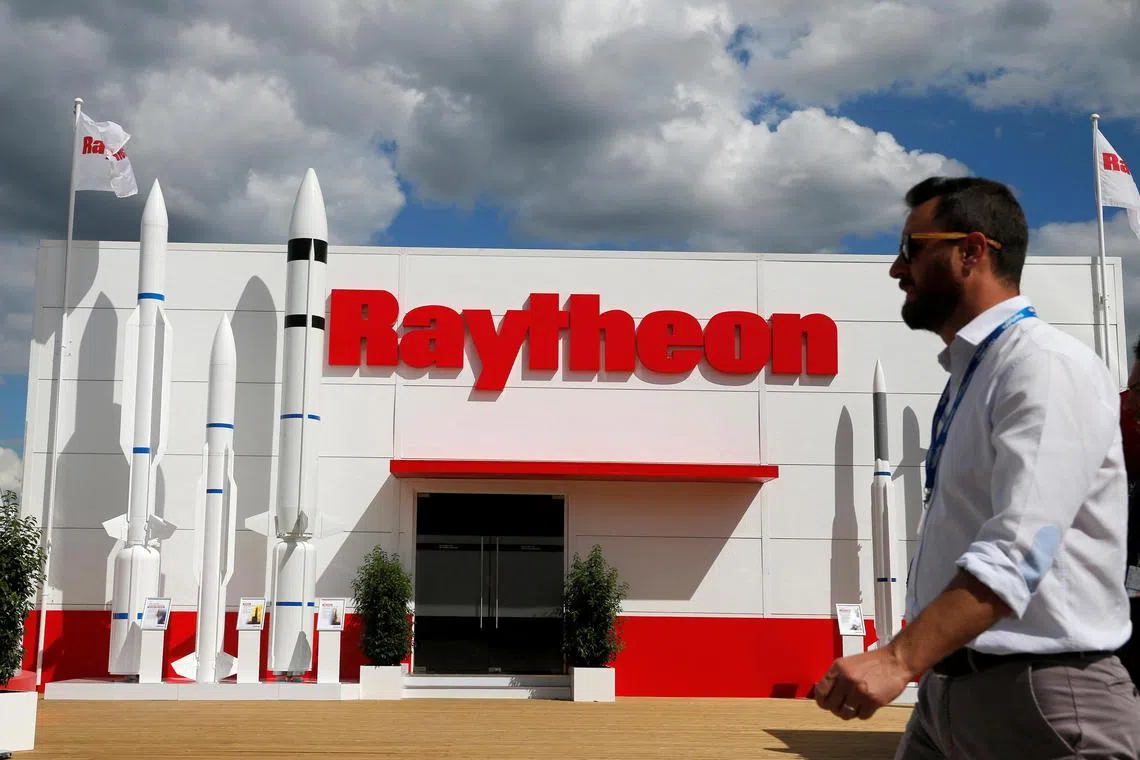China hits back at US with sanctions on Lockheed Martin, Raytheon
Sign up now: Get insights on Asia's fast-moving developments

A subsidiary of Raytheon Technologies Corp was added to a list of “unreliable entities” by China.
PHOTO: REUTERS
BEIJING - China imposed fines and sanctions against two United States defence companies in a further escalation of tensions between the world’s two biggest economies.
Lockheed Martin Corporation and a subsidiary of Raytheon Technologies were added to a list of “unreliable entities” due to their participation in arms sales to Taiwan, China’s Ministry of Commerce (Mofcom) said on Thursday.
The companies were fined twice the contract value of their arms sales to Taiwan since September 2020 when the list first came into effect and would be required to pay within 15 days, according to the statement.
China regards Taiwan as a renegade province to be reunified, by force if necessary. Beijing has long complained about the US supplying weapons to the island.
A day before the announcement, China had warned that it would hit the US with “counter-measures”
However, the subsequent announcement of sanctions may further escalate that dispute.
Washington contended that the balloon was spying and shot it down,
It is unclear if the latest sanctions will prevent a meeting between US Secretary of State Antony Blinken and Mr Wang Yi, China’s top diplomat, on the sidelines of the Munich Security Conference this week.
Mr Blinken cancelled a planned trip to Beijing in February
“It’s a message to the US, but also for domestic consumption – to demonstrate China’s tough position,” said assistant professor Dongshu Liu who specialises in Chinese politics at the City University of Hong Kong.
“The economic consequences might not be as strong as the political ones – those companies don’t do business in China. They may face some limitation as a result of these new sanctions, but still, it’s largely politically symbolic.”
As with previous sanctions announced against the firms and other US defence companies, these measures are likely to be largely symbolic, given both have little direct exposure to China.
An e-mail to Raytheon outside of business hours went unanswered, as did calls to Lockheed Martin.
The Chinese government will ban trade with both firms, and block new investment from the two into China, the ministry said in a statement.
If they do not pay the fines within 15 days, the ministry may increase the fines, the statement said.
In addition, it will cancel and prohibit work and residence permits for the companies’ senior managers and ban them from entry into the country.
This action “shows that China’s retaliation remains very targeted and refrained, responding to US’ arms sales towards Taiwan, over which China has lodged its protest many times in the past,” said Mr Feng Chucheng, a Beijing-based partner at independent consultancy Plenum.
“China is not weaponising its sanctions, which is consistent with China’s longstanding policies.”
China has threatened sanctions against US entities that damage its national security in the past.
In 2020, it said it would impose unspecified sanctions on Boeing’s defence unit, Lockheed Martin and Raytheon
Last September, Beijing said it was sanctioning two top executives at Boeing and Raytheon
“Naming two already sanctioned companies onto the list for the first time actually proves that the Mofcom wants to take it slow and experiment with how to implement the new unreliable entity list,” according to Mr Andy Chen, a senior analyst with Beijing-based consultancy Trivium China.
The list “was created in haste as a response to US’s long-arm jurisdiction, but Mofcom wasn’t ready to deploy it at the time because it lacked the experience – and probably personnel – to carry it out.” BLOOMBERG


